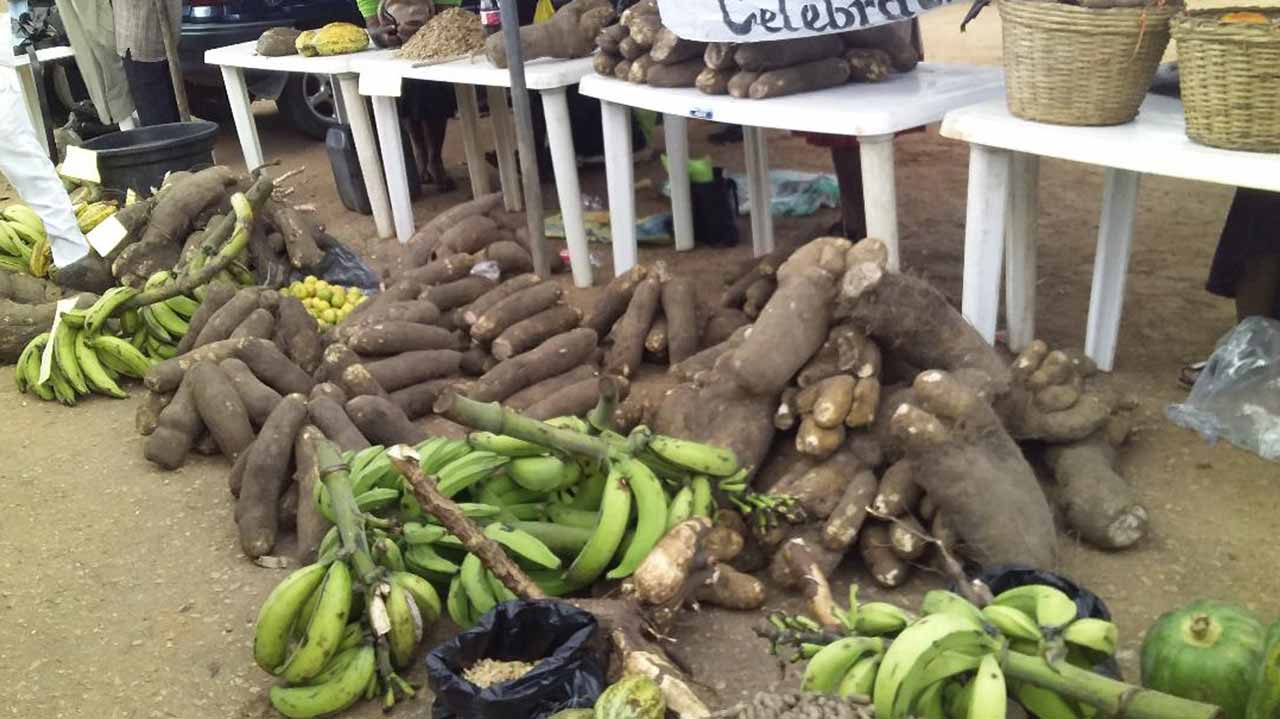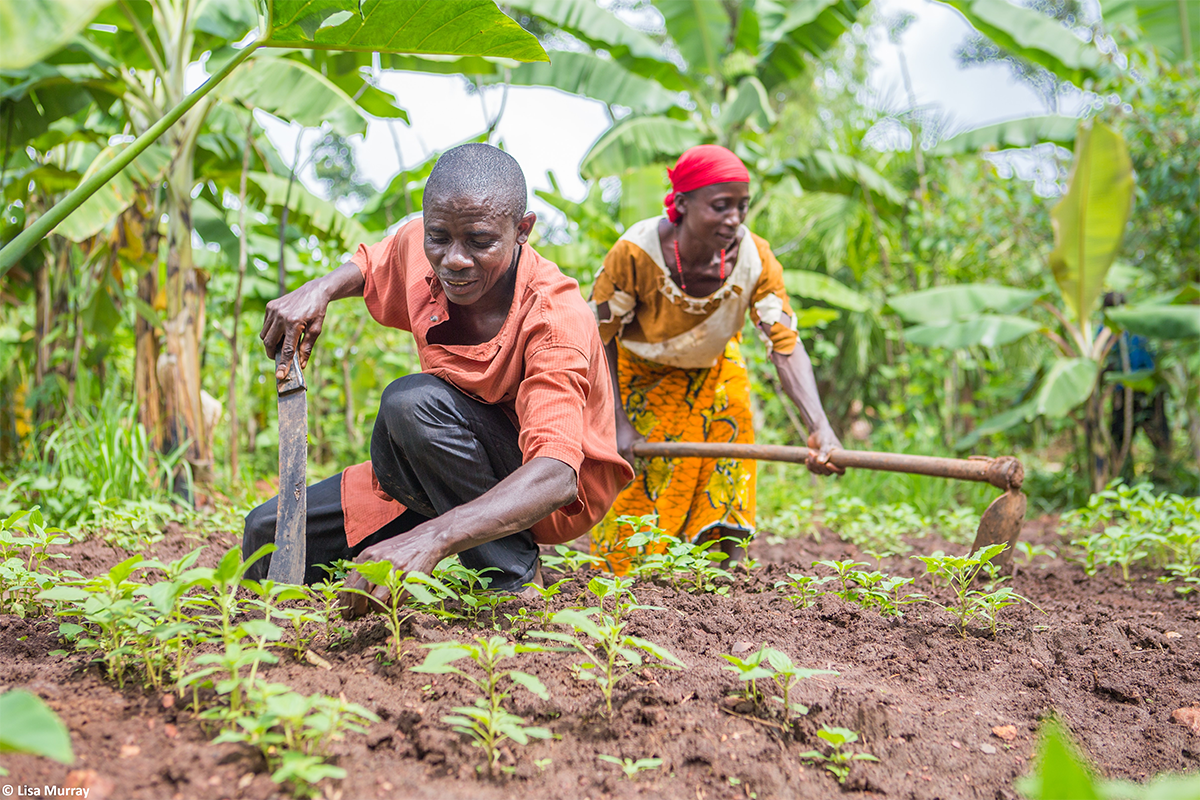
• Oyo assures support for farmers, individuals towards food security
• Abia speaks on interest-free loans to 302 youth- farmers
As Nigeria joined the rest of the world to mark the World Food Day last Wednesday, stakeholders have expressed fear of further hike in the price of food and other agro-based commodities owing to the impact of the Federal Government economic policies and other prevailing factors.
They claimed that while the climate change is having its toll on farmers, with excess rain and longer periods of drought now the order of the day, the cost of inputs has reduced the number of practicing farmers, as those left in the profession can barely afford it, hence, the low yields from their efforts.
The Executive Officer, Oreka Farms Limited, Ogun State, Bose Ruth Suberu, lamented that insecurity has sent a lot of farmers out of business, adding that corruption, diversion of government’s interventions to non-farmers, provision of inferior seedlings and low quality inputs make the expected drop in the cost of food impossible in the next few months.
“I am not seeing an end to the food crisis. In a few months, the cost of food commodities will be higher than we are experiencing currently. The problem that resulted in the food crisis has not been taken care of and we expect an end to it? How is that possible?”
Also, the Founder, Izanu Africa, Comfort Onyaga, said based on the current realities on ground in the country, there is no assurance that the price of food would crash anytime soon.
She said: “The World Food Day 2024 should serve as a reminder to our government and the relevant stakeholders in the food system that good food for all today and tomorrow, which is the theme for this year cannot be achieved within the context of the current realities that we find ourselves in Nigeria.
“The Nigeria of today is a Nigeria where the household cannot afford a tuber of yam. Yam is a staple food across households, across different regions, regardless of their ethnic affiliations. How did we get to the point where people go to the market to buy not even half or a quarter of a tuber of yam, but you go to the market and you have to buy like a quarter of a tuber, just because you want to eat yam? Does it even make sense? It doesn’t.
“The current state of food insecurity in Nigeria speaks to the fact that Nigeria has failed in fulfilling one of the Article 25 of the 1948 Universal Declarations of Human Rights, which says ‘everyone has the Right to Foods’.”
Meanwhile, the Oyo State government has reiterated its commitment to support farmers and individuals in the agribusiness to ensure food security in the state.
The Commissioner for Agriculture and Rural Development, Olasunkanmi Olaleye, stated this when he led farmers and officials of the ministry to mark the World Food Day in Ibadan.
Olaleye said the collective action is necessary to address hunger, malnutrition and poverty.
Speaking on government’s support to farmers, Olaleye explained that about 5,160 acres of farmland have been ploughed under the 50 per cent Tractorisation subsidy.
He stated that farmers have received inputs in various capacities from the state government such as, maize to poultry farmers, arable farmers and many more.
According to Olaleye: ‘’Going by the support received by farmers in the state, coupled with this year’s World Food Day, there is a need for us as government and farmers to give thanks to God.”
On its part, while commemorating the day, the Abia State government explained modalities for the disbursement of interest-free loans to the 302 youth- farmers who graduated from the government’s sponsored training in various branches of agriculture at CSS farms in Nassarawa State.
The Information Commissioner, Prince Okey Kanu, disclosed that since the initiative was flagged-off by Governor Alex Otti in September, the Ministry of Agriculture has overseen and guided the disbursement of loan in tranches, in accordance with the Agriculture Ventures undertaken by the various trainees to ensure there is no abuse of the scheme.
“Beneficiaries will not be given one balloon payment; rather, the disbursement will be in tranches on milestones that will be tied to the level of extent of work done by each beneficiary.”
While flagging-off the celebration on behalf of Governor Otti, the Secretary to the State Government, Professor Kenneth Kalu, tasked the citizens to embrace agriculture, describing the yearly celebration as a reminder to the global populace of what could be done to secure good food and attain food security.
He said the state government would continue its partnership with farmers who have good initiatives, specially giving ample support to agriculture and revive all the moribund agricultural estates established during the defunct eastern region.
The Agriculture Commissioner, Dr Cliff Agbeze, said: “As we convene to commemorate World Food Day 2024, we are reminded that the universal quest for nutritious food has become a pressing global imperative, our collective concern – driven by the converging forces of fate and that this circumstance has crystallised into this year’s theme.”
According to him, the Global Report on Food Crisis (GRFC) 2023 revealed alarming figures on food insecurity worldwide as “approximately, 282 million people across 59 countries face high levels of acute food insecurity, marking an upward trend in affected populations.”
He stated that Nigeria is among the severely impacted countries, with UNICEF reporting that 25 million Nigerians were at high risk of food insecurity, listing the key factors that contribute to food insecurity in Nigeria to include conflict and insecurity, climate change, and economic shocks.
The Vice Chancellor, Michael Okpara University of Agriculture, Umudike, Professor Maduebibisi Ofo Iwe, represented by his Deputy, Professor Elechi Franka Asawalam, said the efforts of the university are strongly focused on generating knowledge through which food could be sustainably produced, noting that the security of any nation starts with food security.
He also indicated that these efforts will continue until the university’s vision and mission are achieved.





